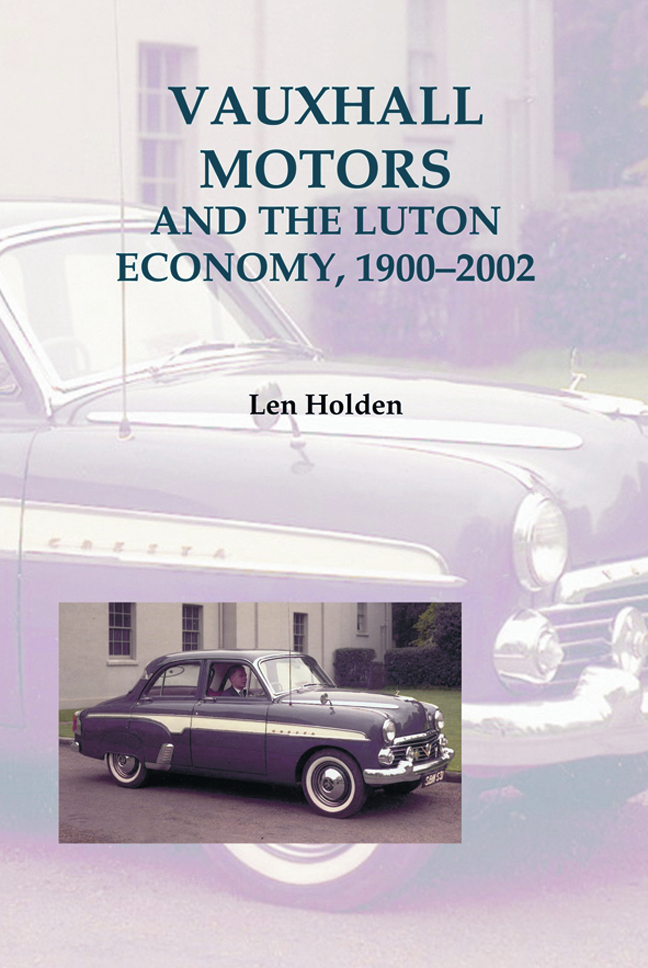Book contents
Introduction
Published online by Cambridge University Press: 15 February 2024
Summary
The main theme of this work is the history of Vauxhall Motors and its impact on Luton in the 20th century. An earlier volume in this series (Strawopolis, by Stephen Bunker) explored the relationship of the hat trade with Luton in the 19th century, and this volume takes further the theme of one dominant industry and its impact on the local economy.
When I first began researching and writing about Vauxhall Motors and Luton back in the late 1970s and early 1980s, Luton and its environs was still very much dominated by Vauxhall and its plants at Luton and Dunstable. Since being asked to extend that work, which was completed in 1983 and took the Vauxhall story up to the 1950s, Vauxhall and Luton have changed considerably. I ended my thesis by stating that the aims of the New Industries Committee of the late 1890s had not been fulfilled. They wanted Luton to move away from reliance on one trade, that of hats, and to diversify into other industries so that the people and economy of Luton would not be at the mercy of the shocks to which the millinery trade was prone. Bouts of unemployment had caused hardship for hat employees and those reliant on the trade. As a result the whole town entered into recession, causing misery and difficulties for many Lutonians and the populace in the surrounding area. The New Industries Committee was to prevent this from happening by encouraging other industries to come to the town and provide work so that recessions in one trade would not have such a devastating impact.
The New Industries Committee set about encouraging emerging industries, one of which was Vauxhall, to locate to Luton. Vauxhall and other companies (notably Electrolux, SKF, George Kent, Hayward-Tyler and Laporte Chemicals) became important industries to the town's development. As we are aware, Vauxhall became a massive success story and bolstered the town's prosperity considerably, causing it to grow enormously. By the 1960s concerns were once again being expressed that Luton was becoming a ‘one industry town’ with the predominance of vehicle production. The local authorities addressed their attention to encouraging diversification. Meanwhile Vauxhall, along with the rest of the motor vehicle industry, began to experience the first shocks of the oil crisis in the 1970s.
- Type
- Chapter
- Information
- Vauxhall Motors and the Luton Economy, 1900-2002 , pp. xvi - xviiiPublisher: Boydell & BrewerFirst published in: 2024

